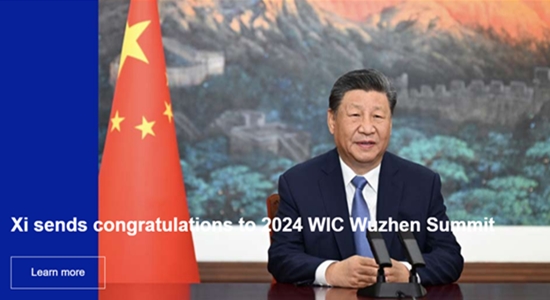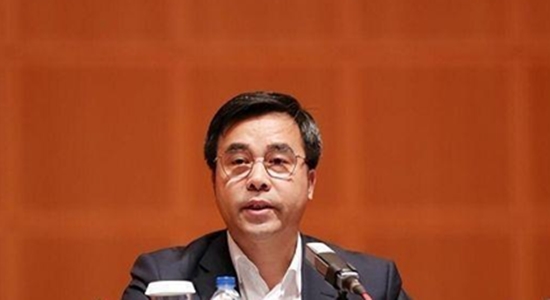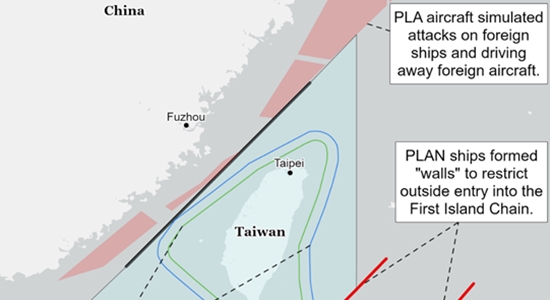
Hu Zimo says that “the world does not trust China when it comes to data security” (“China’s Grand Proposal: Let Us Be Responsible for Protecting Your Data,” Bitter Winter, December 10, 2024).
“The world” is around eight billion people, and some of the persons outside of China are friends of the Chinese government and the Chinese Communist Party. Others, even if not friends and not trusting, are willing to do what the CCP tells them to do or to look the other way as Party operatives operate.
But it is true that the Chinese Communist Party responsible for hacking into your PCs, email accounts, and telecom networks and stealing your data cannot be trusted to keep your data secure.
A new old agenda
Hu reports that a Xi-backed initiative touted at a recent Internet conference in China is an attempt to give the Party a front-door way to “protect,” i.e., access, your data. The hope is that you won’t remember how it has been constantly stealing data and laying the groundwork for even worse cyberattacks, most recently via a massive cyber invasion of U.S. telecom systems facilitated by backdoors mandated by the U.S. government.
ByteDance, the company owning TikTok, is spending millions in trying to persuade American politicians that storing data in China is safe. However, China’s own laws say otherwise, and the problem goes well beyond TikTok.
On November 20, China released the “Global Cross-border Data Flow Cooperation Initiative” at the 2024 World Internet Conference held in Wuzhen, Zhejiang. It was announced with great fanfare and a video message by Xi Jinping himself….
The conference [made clear that Xi’s goal] is to position China as “the top cyber regulator in the field of global data governance.” This is, of course, a political statement, and one listened to mostly by Arab and African countries whose regimes want to break free from the annoying Western protection of data privacy.
China’s aim is not only storing data for the world but persuading as many countries as possible that governments can access them to protect their “national security”—which includes harassing dissidents at home and abroad.
The agenda did not arrive in 2024.
In a 2019 paper archived at the CCP’s World Internet Conference website, we learn that individual citizens “are users of Internet services and one of the main actors in cyberspace. Their responsible behaviors are the cornerstones of a community with a shared future in cyberspace. Citizens must abide by laws and regulations, conscientiously regulate their own online behaviors, and enhance their awareness and capability in terms of cybersecurity protection.”
For China, “responsible behaviors” online or obedience to laws and regulations means things like not posting images of Winnie the Pooh. Not posting video commemorating the victims of mass murder. Not posting images of white sheets of paper. And not criticizing the Chinese Communist Party or talking about any of the many things that the Party does not want you to talk about.
Global, regional, multilateral, bilateral, multi-party
A 2021 paper archived at the site is also full of CCP-style pap designed more to dissemble about totalitarian purposes than to unambiguously state and defend them.
“The world is undergoing profound changes unseen in a century…. In the face of emerging risks and challenges, we must enhance solidarity and cooperation in cyberspace, and uphold fairness and justice for shared benefits of the digital economy….
“Cooperation and dialogues at global, regional, multilateral, bilateral and multi-party levels need to be promoted in a bid to jointly maintain peace and stability in cyberspace and strengthen strategic trust among countries. We oppose acts of attacks, deterrence and blackmailing in cyberspace, stand against conducting activities that undermine other countries’ national security and public interests through the use of ICTs, and guard against arms race in cyberspace as well as attempts to politicize technical issues, so as to create a peaceful environment for development.”
The Chinese Communist Party opposes “acts of attacks” and deterrence?
Deterrence against what? Attacks? Is the reference to “deterrence” as a bad thing to be opposed a mere linguistic or translational glitch, like the phrase “acts of attacks” seems to be? Or is it a sly incidental revelation of the CCP’s actual perspective that—like other words, phrases, sentences, paragraphs, pages, and sections—the drafters of this document expect readers to glide past without any great effort to determine meaning and implications?
Other hints are clearer. No more cyber “arms races”—except by China.
No “undermining” of something called “national security.” The Chinese government regards all criticism of itself as undermining national security.
If you try to deter or stop the CCP’s cyber attacks, this would be “politicizing technical issues.” Meanwhile, everything in Chinese life—everything—is politicized, because the Chinese Communist Party is determined to surveil, censor, and control everything. When the ordinary Chinese citizen manages to carve out slivers of freedom here and there, it is only by countering or evading these pervasive efforts to subject everything to Party control. The Party, which seeks to extend its coercive reach globally, here implies that its totalitarian overlordship is the norm, and normal, the standard of all that is true and good; and that any resistance domestically or internationally is what’s abnormal, false, bad.
“We should take actions to crack down upon cybercrimes, especially their eco-system and chains, and further improve mechanism building on combating cybercrimes and cyberterrorism.”
The Chinese Communist Party does not want to help you defend yourself from cybercrimes and cyberterrorism perpetrated by the Chinese Communist Party.
Going forward
“Going forward, we [the “we” now meaning the Chinese government and no longer the whole world] stand ready to work with the international community to seize the opportunities and address the challenges, so as to jointly build a closer community with a shared future in cyberspace towards a brighter future for humankind.”
A “jointly built closer community,” a “shared community with shared future toward brighter future,” and all such burbling means a world in which everybody everywhere on earth answers to and is controlled by the Chinese totalitarian dictatorship. In cyberspace, out of cyberspace.
Etc. World, don’t listen to these guys. Or do—but very, very carefully.





